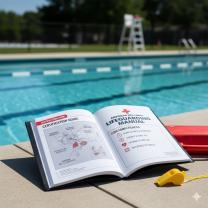What are the most important writing skills?
Effective writing involves a combination of various skills that allow you to communicate your ideas clearly, persuasively, and engagingly. Here are some of the most important writing skills:
Clarity: The ability to express your thoughts in a clear and straightforward manner is paramount. Avoid ambiguity, jargon, and convoluted sentences. Aim for simplicity and precision in your writing.
Grammar and Punctuation: Correct grammar and proper punctuation are fundamental to good writing. This includes using appropriate verb tenses, subject-verb agreement, and knowing when to use commas, semicolons, and other punctuation marks.
Spelling: Proper spelling is essential. Typos and misspelled words can detract from your writing's professionalism and clarity. Use spell-check tools and proofread carefully.
Vocabulary: A rich and varied vocabulary allows you to choose the most precise and effective words for your writing. Reading widely and learning new words can enhance your vocabulary.
Sentence Structure: Skillful manipulation of sentence structure adds depth to your writing. Experiment with different sentence types, such as simple, compound, complex, and compound-complex sentences.
Paragraph and Essay Structure: Understanding how to structure paragraphs and essays is vital. This includes using topic sentences, supporting details, and transitions to create well-organized and coherent pieces.
Conciseness: Avoid unnecessary wordiness and redundancy. Say what you need to say succinctly. Eliminate filler words and phrases.
Audience Awareness: Consider your audience's needs, knowledge, and interests. Tailor your writing to engage and resonate with your target audience.
Tone and Style: Adapt your tone and writing style to match the purpose of your writing and the audience. For example, academic writing may require a formal tone, while creative writing allows for more personal and creative expression.
Research Skills: For informative or persuasive writing, research is essential. Develop skills in finding, evaluating, and citing credible sources to support your arguments and claims.
Editing and Proofreading: The ability to review and revise your work is crucial. Editing involves making substantial changes, while proofreading focuses on correcting errors in grammar, punctuation, and spelling.
Critical Thinking: Strong critical thinking skills help you analyze information, make reasoned arguments, and consider opposing viewpoints. These skills are valuable in persuasive and argumentative writing.
Creativity: In creative writing, such as fiction or poetry, creativity is essential. It involves the ability to generate unique ideas, imagery, and narrative structures.
Storytelling: Effective storytelling is important for engaging readers and conveying complex ideas. It involves constructing narratives that captivate and resonate with your audience.
Writing for Different Mediums: Writing skills can vary depending on the medium (e.g., print, web, social media, email). Understand the conventions and requirements of different mediums.
Adaptability: Writing skills should be adaptable to different genres, formats, and purposes. Be prepared to switch between academic, professional, creative, and other writing styles as needed.
Revision: Embrace the revision process as an opportunity to improve your work. Multiple drafts and revisions often lead to stronger writing.
Time Management: Effective writing often requires setting aside dedicated time for brainstorming, drafting, editing, and proofreading. Good time management skills ensure you have ample time to create quality work.
Resilience: Writing can be challenging, and rejection or criticism is common, especially in professional and creative writing. Develop resilience to overcome setbacks and continue improving.
Feedback Incorporation: Be open to feedback from peers, editors, or instructors. Use feedback as a tool for growth and refinement.
Remember that writing skills improve with practice and feedback. Whether you're writing for academic, professional, or creative purposes, honing these skills will help you communicate more effectively and achieve your writing goals.
Mastering the Craft: The Most Crucial Writing Skills You Need
The most crucial writing skills you need to master are:
- Grammar and mechanics: This includes things like spelling, punctuation, and sentence structure. While it is possible to be a good writer without perfect grammar and mechanics, it is important to have a strong foundation in these areas.
- Clarity: Your writing should be clear and easy to understand. Avoid using jargon or overly complicated language.
- Conciseness: Get to the point quickly and avoid unnecessary fluff.
- Organization: Your writing should be well-organized and logical. Use headings and subheadings to break up your text and make it easy to read.
- Style: Develop your own unique writing style. This will help your writing stand out and make it more engaging for your readers.
Essential Writing Skills: A Comprehensive Guide to Effective Communication
Here is a comprehensive guide to essential writing skills for effective communication:
- Know your audience: Tailor your writing to your audience. Consider their age, education level, and interests.
- Have a clear purpose: What do you want your readers to do after reading your writing? Keep your purpose in mind throughout the writing process.
- Support your claims: Don't just make assertions; use evidence to support your claims. This evidence can come from research, personal experience, or expert opinions.
- Be objective: Avoid using biased language or expressing your personal opinions as facts.
- Proofread your work carefully: Before you submit your writing, proofread it carefully for any errors in grammar, mechanics, or spelling.
Elevating Your Writing: Skills That Can Set You Apart in Any Field
Here are some skills that can set your writing apart in any field:
- Strong word choice: Use vivid and descriptive language to bring your writing to life.
- Variety in sentence structure: Avoid using the same sentence structure over and over again. Mix things up to make your writing more interesting to read.
- Effective use of transitions: Transitions help to connect your ideas and make your writing flow smoothly.
- A strong sense of tone: Your writing should have a consistent tone throughout. The tone should be appropriate for your audience and purpose.
- Creativity: Don't be afraid to experiment with your writing. Try new things and find what works best for you.
By mastering these essential writing skills, you can become a more effective communicator and set yourself apart in any field.
Here are some additional tips for elevating your writing:
- Read widely and often. The more you read, the more exposure you will have to different writing styles and techniques.
- Get feedback from others. Ask friends, family, or colleagues to read your work and give you feedback. This can help you to identify areas where your writing can be improved.
- Revise and edit your work. Once you have finished writing, take some time to revise and edit your work. This will help you to catch any errors and improve the overall quality of your writing.
Writing is a skill that takes time and practice to develop. But by following these tips, you can master the craft of writing and become a more effective communicator.













